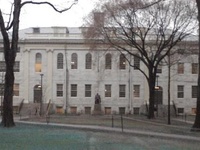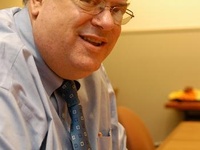A month later, the newly formed duo made their first move in Kirby’s letter to FAS, announcing the review’s official beginning and ushering in a “year for thought, discussion [and] reflection” on the foundations of undergraduate education at Harvard.
By spring 2003 the working groups were in place, and the 50 committee members were assigned to study either overall academic experience, pedagogy, concentrations or general education.
With Gross assuming a new post as Dean of Harvard College, Wolcowitz assumed responsibility for managing the review and has been charged with writing the report, which will be passed on to committee members for one final revision before its May release.
“We want to produce a coherent document,” Wolcowitz says. “We are collecting the summaries from the various working groups of their main points.”
While the May report will contain the most concrete recommendations to date, Wolcowitz stresses that it will not contain official legislation.
“There will be greater specificity in what we will put out next, but it will not be so specific that people will be able to vote ‘yay’ or ‘nay,’” he says. “Will it argue for certain specific things? Yes. Which ones? I’m not ready to say.”
SPREADING THE WORD
In November 2002, Kirby and Gross made two separate visits to the Undergraduate Council (UC), where they outlined the motivations for the review and emphasized the breadth of potential changes.
Gross also moderated two panels about the review—one about the future of the Core and another in which deans from Yale, Brown, and Columbia weighed in on Harvard’s place in academia.
Despite the promotional efforts, only about 50 people attended the first symposium, which was broadcast live over the Internet from the FAS home page.
Administrators continued to gather opinions about the review at home and overseas.
Summers and Kirby have kept alumni up to date about the review’s progress.
From September to March of this year, Kirby held 18 “roadshow” events for alumni, where either Gross, one of the steering committee co-chairs or Kirby himself led round table discussions about the review. The tour landed in twelve cities, including New York, Chicago and Hong Kong.
And while pitching the review outside Cambridge, the deans set to work at winning over their colleagues.
When the idea of the review was first introduced in Faculty meetings, professors were excited about the opportunity to shape the College’s academic future.
Read more in News
Mahan Unveils New Harvard-Yale Game Plan















